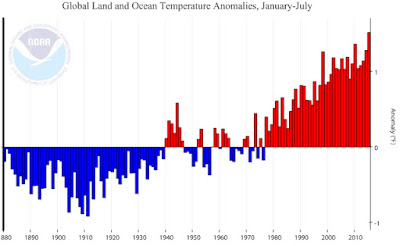25 August 2015, The Conversation, Time for the ‘green tape’ debate to mature: jobs and the environment are not implacable foes. The highly charged debate over the proposed Carmichael coal mine, which culminated in Attorney-General George Brandis’s decision last week to propose winding back environmental legal protections, has exposed the simmering tension between “jobs” and “the environment” on Australia’s political landscape. On one hand, those seeking to invest in the development of Australia’s natural resources and jobs growth have been making a clear case that Australia’s system of assessment and approval for major projects is riddled with procedural uncertainty. On the other, environmental advocates and local communities feel that the current system does not adequately protect the environment – correctly pointing out Australia’s less than stellar record in preventing species from going extinct. As a nation, however, we need to lift our game on both fronts. Investors in the Australian economy and those seeking jobs and growth need certainty with regard to where and how they invest. Equally, to avoid warfare (or “lawfare”) on a project-by-project basis, Australia’s environmental advocates and local communities need certainty too. They need clarity about where and how economic development can occur without harming our environmental heritage. Read More here
Monthly Archives: August 2015
24 August 2015, Climate Code Red, As 2015 smashes temperature records, it’s hotter than you think. There is an El Nino in full swing which helps push average global temperatures higher, and records are being broken, but just how hot is it? For several years, we have heard that global warming has pushed temperatures higher by around 0.8 to 0.85 degrees Celsius (°C). But in 2015, that number is not even close. Even before this year’s strong El Nino developed, 2015 was a hot year. The first few months of the year broken records for the hottest corresponding period in previous years all the way back to the start of the instrumental record in 1880. Each month, new records fell.
With the July data in, the US Government’s National Oceanic and Atmospheric Administration reported that July was the hottest month among the 1627 months on record since 1880, and the first seven months of the year was the hottest January-July on record: The July average temperature across global land and ocean surfaces was 0.81°C above the 20th century average. As July is climatologically the warmest month for the year, this was also the all-time highest monthly temperature in the 1880-2015 record, at 16.61°C, surpassing the previous record set in 1998 by 0.08°C. The July globally-averaged sea surface temperature was 0.75°C above the 20th century average. This was the highest temperature for any month in the 1880-2015 record, surpassing the previous record set in July 2014 by 0.07°C. The global value was driven by record warmth across large expanses of the Pacific and Indian Oceans. The year-to-date temperature combined across global land and ocean surfaces was 0.85°C above the 20th century average. This was the highest for January-July in the 1880-2015 record, surpassing the previous record set in 2010 by 0.09°C. As 2015 smashes temperature records, it’s hotter than you think. Read More here
23 August 2015, Climate News Network, Too warm, too few fish: Health warning for world’s oceans. Rampant overfishing combined with the impact of climate change is seriously endangering the wellbeing of the oceans, environmental analysts say. The world’s oceans – covering nearly two-thirds of the Earth’s surface, and on which much of human life depends – are under severe pressure, a report says. Over-fishing has dramatically reduced fish stocks. The thousands of tonnes of rubbish dumped in the oceans wreak havoc on marine life, while climate change is warming and acidifying them, putting them under further stress. These are the sobering conclusions of a wide-ranging study of the Earth’s ecosystems by theWorldwatch Institute, a US-based organisation widely rated as one of the world’s foremost environmental think-tanks. “Our sense of the ocean’s power and omnipotence – combined with scientific ignorance – contributed to an assumption that nothing we did could ever possibly impact it”, says Katie Auth, a researcher at Worldwatch and one of the authors of the report. “Over the years, scientists and environmental leaders have worked tirelessly to demonstrate and communicate the fallacy of such arrogance.” Read More here
22 August 2015, BIEN, GREECE: Government to roll out a Guaranteed Minimum Income scheme. The new bailout agreement between Greece and international creditors includes plans for a national roll-out of a Guaranteed Minimum Income (GMI).[i] The GMI is not an unconditional basic income for all citizens, but would be the first universal means-tested grant that covers all Greeks below a certain level of income and asset ownership, regardless of employment status, job contract type, professional category, gender or age. In the latest round of bailout negotiations, Greek Prime Minister Tsipras reportedly opposed the introduction of the GMI. The final memorandum approved by the Greek parliament last week, however, provides for a national roll-out of the GMI by end of 2016. The government needs to find 0.5% of GDP to finance the national GMI scheme. A draft report from the World Bank published in January this year, provides a core scenario where 1.2 million people would be covered by the GMI – this is constructed on the basic qualifying criteria and payment amounts of a GMI pilot started last year. The measure would cost €980 million or 0.54% of GDP. Read More here
e

